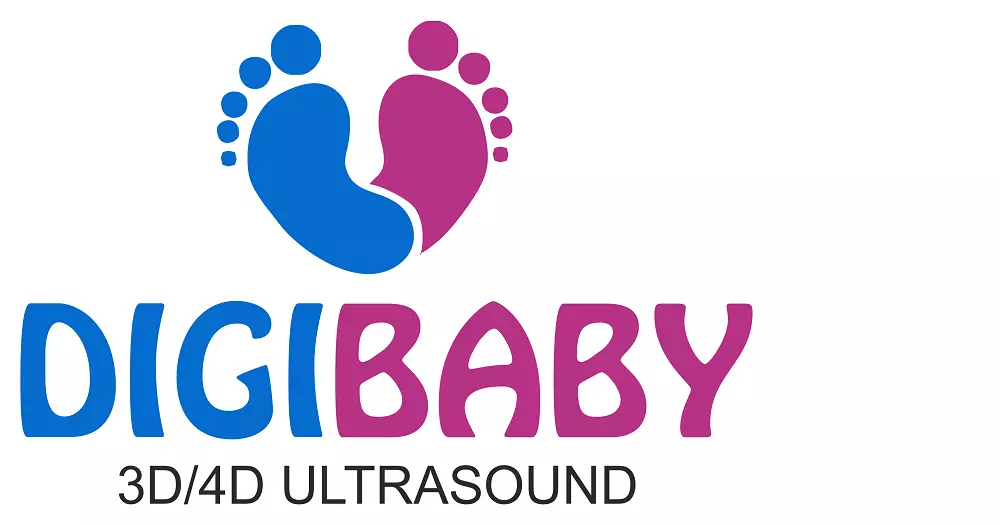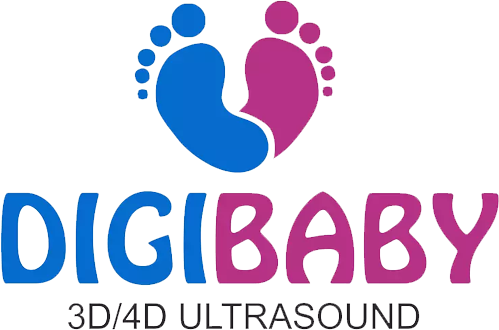How to Prepare for an Ultrasound During Pregnancy
Ultrasounds during pregnancy are a crucial part of prenatal care as it helps women to get various kinds of essential information, from knowing the estimated date of delivery to understanding the fetal heartbeat, blood flow in the fetus, its growth, placental location, etc. Ultrasounds allow the to-be-parents to get an accurate picture of the week-by-week growth of the baby inside the womb, the baby’s movements, and position. Many women might feel anxious before going for their first ultrasound scan, but let us tell you that ultrasound procedure aren’t at all stressful. The key to a successful ultrasound exam is to be confident and learn about the purpose of ultrasound scans, their procedures, and their requirements.
For accurate ultrasound results, would-be parents must consult the well-renowned ultrasound scanning center. Digibaby 3D/4D Ultrasound is the most reliable name you can trust on. We are a team of highly experienced healthcare providers who bring out magic for all the to-be-parents. We help parents to get the first glance of their baby inside the womb. Digibaby is always there to support its clients and help them with all pregnancy and ultrasound-related queries.
Here in this blog, we will share a few essential tips that you must know while preparing for your pregnancy ultrasound test at any clinic. We will let you know the basics of ultrasound and what you should keep in mind while consulting your gynecologist or obstetrician.
Understanding the basics of ultrasound
A prenatal ultrasound scan (also called a sonogram) is a non-invasive diagnostic imaging test. This test uses high-frequency sound waves for capturing images of your developing baby as well as your reproductive organs. Any potential problem or congenital disabilities during pregnancy can be looked at and cured with the help of regular ultrasound scans. Unlike other imaging techniques such as x-rays or CT scans, ultrasound does not use any radiations for image capturing. Thus, it is the most preferred and safest method for studying the development of the fetus during pregnancy.
In most prenatal ultrasounds, a device (transducer) is used for sending high-frequency sound waves through your abdomen. Then the recorded sound echoes are changed into real-time pictures or videos of the baby inside the womb or other amniotic sac, placenta, and ovaries. However, there is an alternative procedure too i.e. the transvaginal ultrasound in which a tubular probe is injected into the vagina. The transvaginal ultrasound helps in producing better image quality of the uterus or ovaries if a problem is suspected.
How should you prepare for a prenatal ultrasound test?
Well, there is no such special preparation for the ultrasound test. Your doctor might tell you to fast for few hours (8 to 12 hours approx.) before the ultrasound scan test. Fasting before the ultrasound test is essential as the undigested food blocks the sound waves and makes it difficult for the doctor to get a clearer image.
For the prenatal ultrasound scan, it is important to have a full bladder. So, your doctor may ask you to consume a lot of water. You have to hold your urine to make your bladder full to get better-visualized images of your baby.
Before your prenatal ultrasound, tell the healthcare provider regarding your prescribed medicines, over-the-counter medications, or herbal supplements that you are taking. You should follow the instructions by your doctor and ask all your queries before going for the procedure. Always remember not to wear any jewelry while going for the test. Your examiner may ask you to remove it. It is advisable to wear some loose two-piece clothing during the prenatal pregnancy ultrasound. It helps the examiner to run the transducer on the surface of the abdomen efficiently.
What is the procedure of the pregnancy ultrasound?
Most ultrasound tests are completed between 15 to 45 minutes. It is performed either by the doctor, radiographer, or sonographer. The healthcare provider prepares for the ultrasound test depending upon which body part is to be scanned. If you are not wearing any loosely fitted clothes, you have to change to the hospital gown. The doctor will ask you to lie down on a comfortable examining table on your side or back. Now the ultrasound technician will apply a special water-soluble lubricating gel to your skin. It is essential to use the lubricating gel as it helps in preventing friction between the ultrasound transducer and your skin. The gel is also helpful in efficiently transmitting sound waves.
The examiner will now move the handheld instrument (transducer) gently against your skin on your abdomen or inside your body. The transducer then sends high-frequency sound waves through your body, reflecting off internal structures, including your baby, on the computer screen. The examiner or your doctor then interprets the picture formed on the computer screen. Your examiner may ask you to hold your breath for a few seconds to get a clearer picture. Moreover, they may ask you to change positions for better access. After the procedure completes, the examiner wipes off the remaining gel from your skin, and you can then go back to your normal activities.
The significance of having an ultrasound scan during pregnancy
Ultrasounds during pregnancy help get aware of the fetus’s weekly growth, fetal blood flow, and various other parameters. During pregnancy, certain situations, such as bleeding, excessive abdominal pains, etc., call for a proper ultrasound scan. You get different ultrasound pictures in each trimester of pregnancy.
The purpose of the first-trimester ultrasound (1-12 weeks) is as follows –
- Confirming pregnancy
- Detecting fetal heartbeats
- Estimating the date of delivery
- Identifying single or multiple pregnancies
- Observing the placenta, fallopian tube, cervix, uterus, and ovaries
- Checking the position of your baby
- Diagnosing miscarriage, if any
During the second trimester (12-24 weeks) and the third trimester (24-40 weeks), you can get the following results from an ultrasound –
- Growth of the baby and the development of limbs
- Determining the gender of the baby
- The exact location of the placenta during pregnancy
- Identifying the fetal structure abnormalities such as Down Syndrome (though not all congenital disabilities can be confirmed during ultrasound test)
- Checking the blood flow and the growth of internal organs of the baby
- Length of the cervix
- Diagnosing any other problem in the mother
- The amount of fluid around the baby
Get relevant health advice and reliable ultrasound tests during pregnancy at Digibaby 3D/4D Ultrasound.
Ultrasounds are the proven method for safely gathering critical imaging data at the time of pregnancy. At Digibaby 3D/4D Ultrasound, we take steps to make the entire ultrasound procedure comfortable for the mothers-to-be. Our highly professional healthcare providers always make sure to comfort the mothers by reducing their anxiety about ultrasound. We have various ultrasound packages offering different services at a very minimal cost. Our ultrasound packages –
- Basic Package – Starting at $79
- Gender Package – Starting at $99
- Silver Package – Starting at $129
- Golden Package – $159
- Platinum Package – Starting at $235
Consult us now and get your ultrasound done without taking any tension. Our practitioners ensure to take all the precautions to keep the mother and the baby 100% safe.


